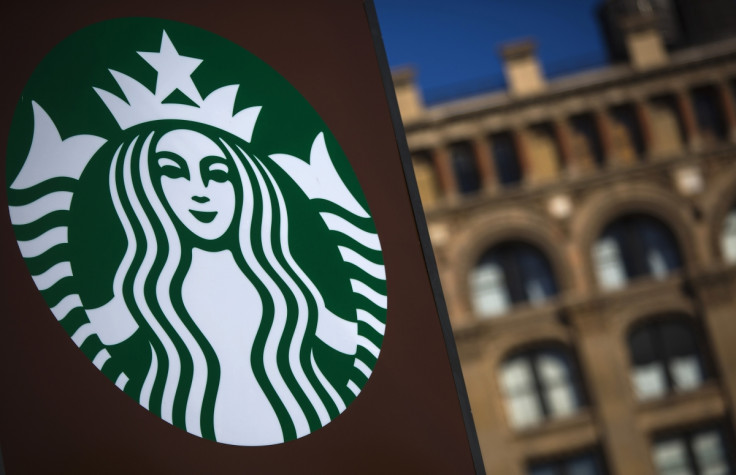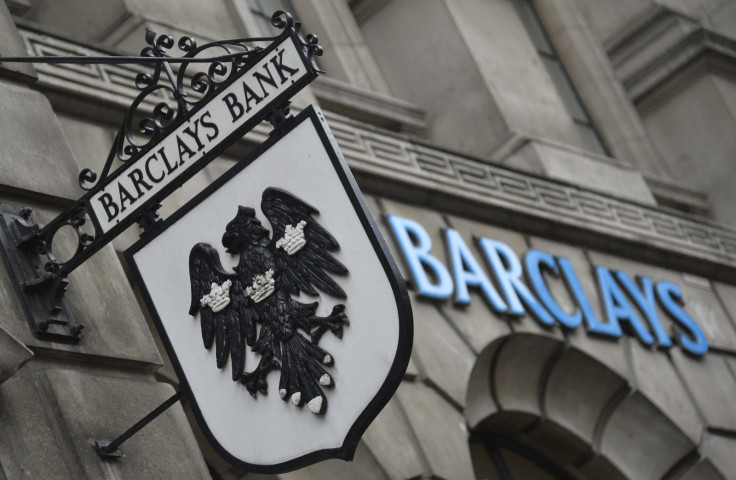Margareta Pagano: Starbucks, Amazon and Google are banking on success so watch out 'Big Four'
Want to transfer money to a friend or make payments without ever going to a bank again? Well, how about stopping off at Starbucks to ask the barista to swipe your pre-paid card to transfer money to your friends' account while paying for your skinny cap??
If coffee is not your cup of tea, then what about liking a friend on Facebook so much that you can transfer money to her or him as well?

In many ways, Starbucks is already undertaking two of the core functions of a traditional bank. Its pre-paid reward cards allow customers to pay for goods and store money.
They clearly like it, as nearly a third of Starbucks transactions in the US are handled through its pre-paid loyalty cards to the tune of around $2.5bn (£1.6bn).
Facebook is not far behind. The social media giant is waiting for the Irish authorities to approve its digital e-money transfer services, which will allow Facebookers to send money to each other and third parties using Messenger and WhatsApp.
If Ireland gives Facebook – which now has 1.4 billion monthly active users – the green light, it will be able to offer e-money transfer services throughout the European Union.
Starbucks and Facebook are the latest new boys to dabble in banking. Google, Apple, eBay and Amazon are already out there scaring the living daylights out of the bankers with their mobile apps and new payments systems. Indeed, some analysts reckon they will have gobbled up at least a third of all retail financial services within the next five years.
So far, they only have the tiniest market share of all payments – a couple of per cent each – but it's not difficult to see the huge advantages they have over their dinosaur banking rivals: a big customer and data base (Google's Android phone software is used by a billion people while Apple's iPhone has 600 million users worldwide), tech-savvy young customers and, for now certainly, customer trust - which as the financial crisis showed so vividly, is the essence of any sound banking system.
Google leads the pack with its Wallet system (currently only available in the US) that allows customers to transfer money through Gmail; eBay's PayPal allows people to send money and store it; while Amazon's 1-Click payment system allows customers to transfer money to other platforms.
Then there are mobile-only banks such as Atom Bank, which is being launched later this year by the co-founder of Metro Bank, Anthony Thomson, who compares banks that have physical branches today to BT putting phone kiosks back on the street.
Banking revolution, tech-style
Ouch. It's too early to say whether the soothsayers are right about how successful the tech entrants will be in banking. But what is sure is traditional bank services – deposit taking, money transfer, risk underwriting for securities issuance and trading, retail and commercial lending, advisory services, research provision to fiduciary and asset management activities – are going through a revolution every bit as game-changing as what the media and music industries have been through.
Nor is revolution confined to retail banking. Commercial and investment banking are also seeing big disruptions to their business models, whether it's from peer-to-peer lending, crowdfunding or even new social networks such as invstr, an online platform that helps trains traders for a fraction of the price of a Bloomberg terminal.
Invstr is the creation of Kerim Derhalli, former head of global equities at Deutsche Bank, who predicts the banking industry is fragmenting so rapidly that he believes we will soon become, in effect, our own banks and source the financial services we require. However you look at banks, he says, they are really only a bundle of mismatched activities that do not necessarily sit together and there are certainly few economies of scale.

He says: "Money is only another digital product and we will eventually buy most of our 'money services' from aggregated content and service provider just as we now access our books, music and films online from aggregated content platforms, such as Netflix or Spotify."
Is Derhalli right? For starters, bank customers are surprisingly sticky about staying with the big four high-street banks – Barclays, Lloyds, HSBC and RBS.
Despite the public's distrust of bankers post-crash and the government's championing of challenger banks such as Handelsbanken and Metro, it's surprising that so few people have bothered to change their bank accounts. As a top adman once told me, there are three things that most people usually do only once in a lifetime- change their marriage partner, their newspaper or their bank.
So what will make us switch to these new disruptive platforms? For one thing, technology is now so good that access to money is nearly instantaneous, no matter who is ultimately holding it, and the costs should be lower. At the same time, the use of mobile apps to buy, shop, bank or play games is soaring – even among the elderly.
Like BT telephone boxes, bank branches are disappearing fast – RBS, Lloyds, Barclays and Santander UK closed 500 branches between them last year. That's why Vince Cable's attempt this week to persuade the banks to help rural communities by keeping branches was a waste of time; he should be pushing for faster and decent broadband nationwide instead.
It's unlikely banks will ever go away entirely as someone has to keep your money secure but they will become more like back-office utilities, leaving the clever stuff to the techies. If the music and media industries are a guide, it's going to be the best app that wins.
RBS says its busiest branch is the 7.01am Reading to Paddington train. But the pertinent question is how long before commuters can choose to make those payments and transfers without using the bank's mobile app but via the cloud through Twitter or Tumblr?
Margareta Pagano is a business journalist who writes for the Independent and the Financial News. Follow her on Twitter @maggiepagano.
© Copyright IBTimes 2025. All rights reserved.






















